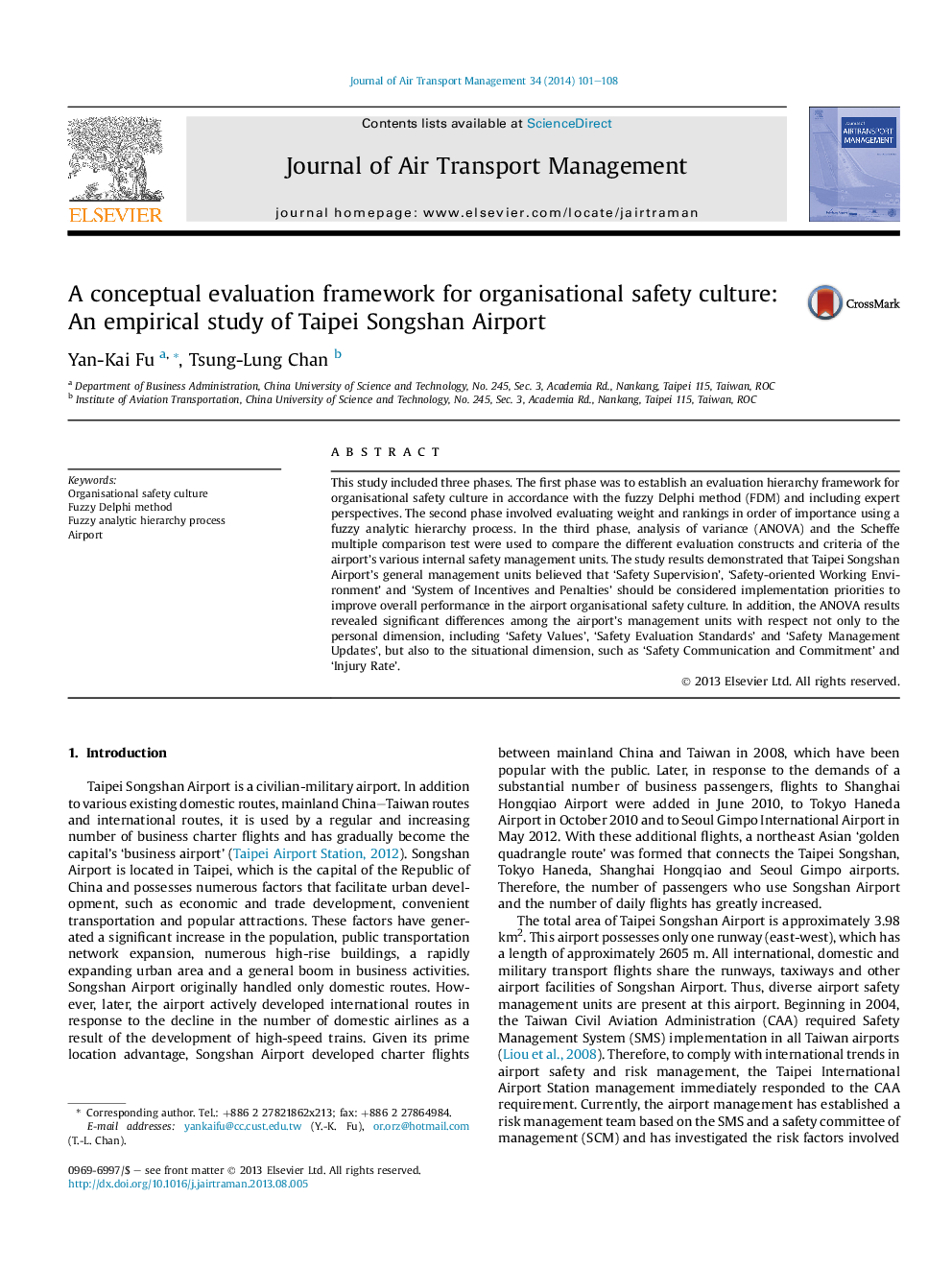| Article ID | Journal | Published Year | Pages | File Type |
|---|---|---|---|---|
| 7436008 | Journal of Air Transport Management | 2014 | 8 Pages |
Abstract
This study included three phases. The first phase was to establish an evaluation hierarchy framework for organisational safety culture in accordance with the fuzzy Delphi method (FDM) and including expert perspectives. The second phase involved evaluating weight and rankings in order of importance using a fuzzy analytic hierarchy process. In the third phase, analysis of variance (ANOVA) and the Scheffe multiple comparison test were used to compare the different evaluation constructs and criteria of the airport's various internal safety management units. The study results demonstrated that Taipei Songshan Airport's general management units believed that 'Safety Supervision', 'Safety-oriented Working Environment' and 'System of Incentives and Penalties' should be considered implementation priorities to improve overall performance in the airport organisational safety culture. In addition, the ANOVA results revealed significant differences among the airport's management units with respect not only to the personal dimension, including 'Safety Values', 'Safety Evaluation Standards' and 'Safety Management Updates', but also to the situational dimension, such as 'Safety Communication and Commitment' and 'Injury Rate'.
Related Topics
Social Sciences and Humanities
Business, Management and Accounting
Strategy and Management
Authors
Yan-Kai Fu, Tsung-Lung Chan,
